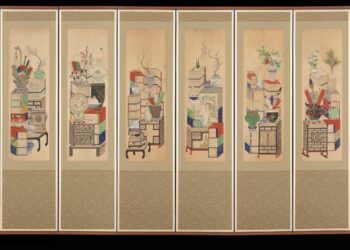I am pleased to announce that I will be working with Terry Ehling and Kizer Walker on a project to investigate the potential impact of libraries’ patron-driven acquisition (PDA) plans on book publishers, and on university presses in particular. Terry is Associate Director, Project Muse, at the Johns Hopkins University Press. Kizer is Director of Collection Development, Cornell University Library. The Principal Investigator for the project is Kathleen Keane, Director of the Johns Hopkins University Press. This project has been made possible with the generous support of the Andrew W. Mellon Foundation.
PDA is an evolving practice in the library world. With a PDA system in place, library patrons can go to a library’s catalog to search for books. If a desired book is not in the library’s collection, the patron may request that the library purchase it. PDA systems vary library by library, but the current norm among libraries with PDA programs or experiments in place (this is a dynamic situation) is for libraries to set aside a portion of the materials budget for PDA. The books that are eligible for PDA represent a curated subset of all books published. For example, an academic library may authorize purchases through PDA of scholarly monographs, but may choose not to offer PDA for popular fiction or self-published works.
The literature on PDA is growing rapidly. To cite just two pieces for the time being: Rick Anderson posted some astute remarks about PDA on the Kitchen a while back, and I recommend his piece highly. I also recommend that those interested in PDA take a look at the presentation of Becky Clark of Johns Hopkins University Press, which summarizes the results of a survey of American university presses on PDA.
The current project had its genesis in a paper prepared by Kizer and his colleagues at Cornell. The question that Kizer’s group was investigating was how exactly were books circulating in the Cornell libraries. The group found a rather long latency for new books entering the collection — books were still being “discovered” (circulating for the first time) in significant numbers over a period of about 12 years on the shelf; after that, first-time circulation dropped off. For PDA, this raises the question of whether PDA titles put in library catalogs today and discovered there 12 years from now would still be available for delivery (assuming these books would be published in the first place with such a long lag before sale).
I contacted Kizer to discuss his report and its implications and subsequently wrote about this report on the Kitchen. It was Terry who perceived that there was a need to gather information about PDA for people in the academic publishing community, not all of whom had begun to think about PDA’s implications and who may in any event lack the organizational resources to investigate the matter on their own.
PDA is coming into existence for a number of reasons, not the least of which being that there are far more books than even the largest libraries can add to their collections. By apportioning some part of the library’s book budget to PDA, libraries potentially can reduce their costs since the purchase of some titles will be delayed until a patron actually requests them and for some titles there will be no purchase at all. PDA also may lead to better collection-building (it is not clear if there is a consensus on this) by expanding the number of selectors to include faculty.
The question we plan to explore is how publishers should think about PDA. From the AAUP survey cited above (Becky Clark’s presentation), one gets the impression that more than half of the surveyed members of the university press world view PDA as a negative. But is this necessarily so? Can PDA also open up new market opportunities through the novel link between faculty and the direct purchase of a book conducted under the auspices of the library? What steps should publishers take to enhance the discovery of their titles in systems that support PDA?
These questions cannot be taken in isolation. The publication of scholarly monographs has been under stress for many years. It is not unusual for a university press to have a total sale of 300 copies for some titles, a number insufficient to cover the costs of editorial acquisition, production, manufacturing, and distribution. Pointing to PDA as a new headache for monograph publishers ignores the fact that the head already aches and that the systems being developed for PDA may be useful for other purposes, including enhanced discovery. It is the bias of this report not to think of PDA simply as a way of increasing purchasing efficiency but as a piece of new infrastructure in the overall value chain. For publishers, PDA may be a negative, neutral, or a positive, but until they have a better idea of how it works, they will be ill-equipped to work with libraries and PDA in a constructive manner.
From time to time I will be posting some findings (and probably many questions) about PDA here at the Kitchen.
Our plan is to interview representatives of academic libraries, university presses, and the supply chain (e.g., library wholesalers). We will prepare a written report, which will be posted online in open access form. Along the way we can use the help of those working in scholarly communications. We would like to hear from university press and academic library personnel about PDA: how it is being implemented and its implications.
Please write us if you would like to participate in the study. We have created a special email account for this project: hopkinspdaproject@gmail.com.
We look forward to hearing from you.
Discussion
17 Thoughts on "Book Publishers and Patron-Driven Acquisition: Announcing a Research Project"
Joe: Just want to say thanks for your involvement in this study. I think it’s a very worthy undertaking.
This group should also review other such studies, e.g., Univ. of Iowa’s “Give ’em What They Want: Patron-Driven Collection Development“
I work with a vendor that is launching in the U.S. that deals with PDA approach for academic and public libraries, if interested in that view let me know.
Erik


